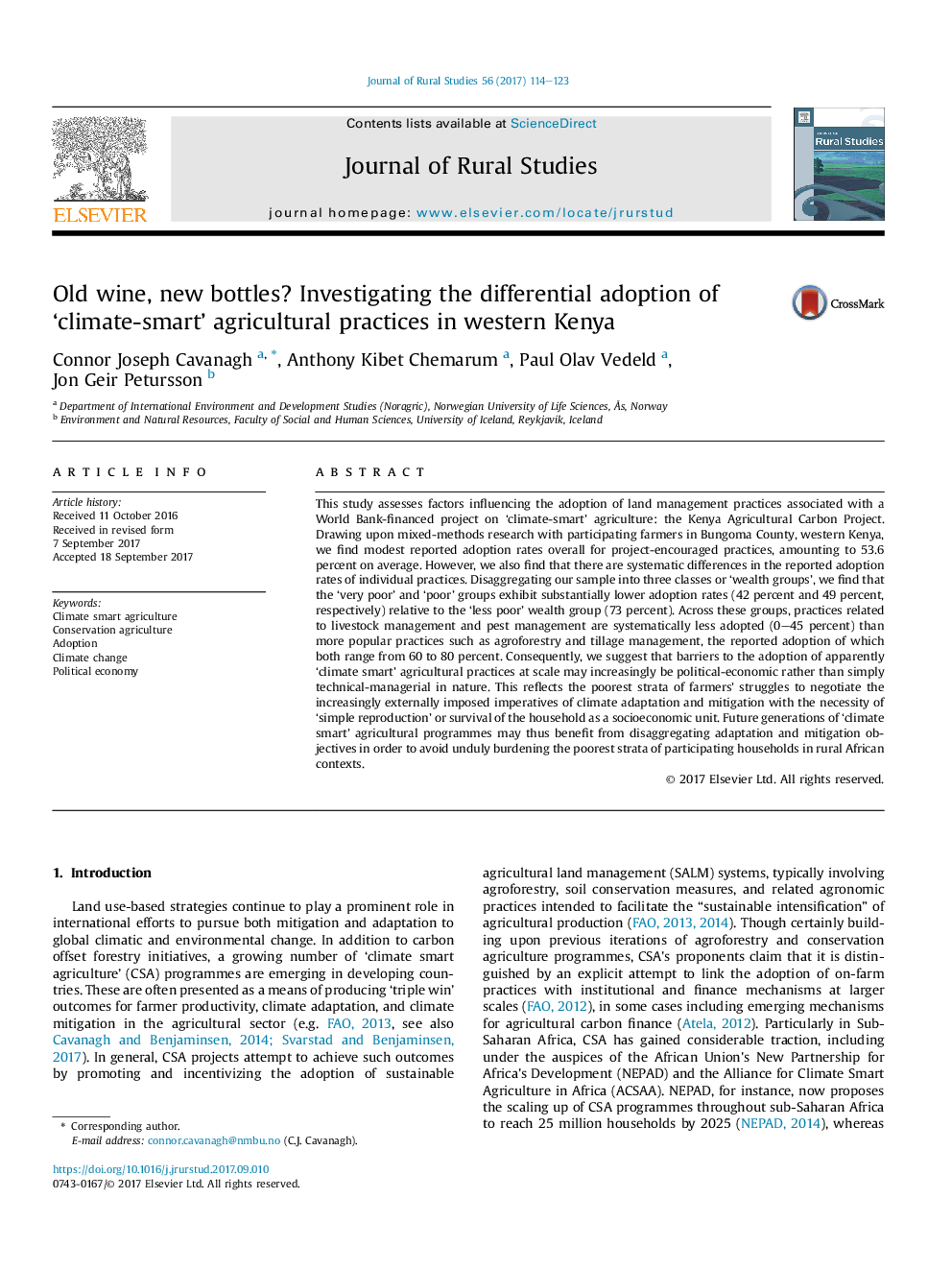| Article ID | Journal | Published Year | Pages | File Type |
|---|---|---|---|---|
| 4759926 | Journal of Rural Studies | 2017 | 10 Pages |
Abstract
This study assesses factors influencing the adoption of land management practices associated with a World Bank-financed project on 'climate-smart' agriculture: the Kenya Agricultural Carbon Project. Drawing upon mixed-methods research with participating farmers in Bungoma County, western Kenya, we find modest reported adoption rates overall for project-encouraged practices, amounting to 53.6 percent on average. However, we also find that there are systematic differences in the reported adoption rates of individual practices. Disaggregating our sample into three classes or 'wealth groups', we find that the 'very poor' and 'poor' groups exhibit substantially lower adoption rates (42 percent and 49 percent, respectively) relative to the 'less poor' wealth group (73 percent). Across these groups, practices related to livestock management and pest management are systematically less adopted (0-45 percent) than more popular practices such as agroforestry and tillage management, the reported adoption of which both range from 60 to 80 percent. Consequently, we suggest that barriers to the adoption of apparently 'climate smart' agricultural practices at scale may increasingly be political-economic rather than simply technical-managerial in nature. This reflects the poorest strata of farmers' struggles to negotiate the increasingly externally imposed imperatives of climate adaptation and mitigation with the necessity of 'simple reproduction' or survival of the household as a socioeconomic unit. Future generations of 'climate smart' agricultural programmes may thus benefit from disaggregating adaptation and mitigation objectives in order to avoid unduly burdening the poorest strata of participating households in rural African contexts.
Related Topics
Life Sciences
Agricultural and Biological Sciences
Forestry
Authors
Connor Joseph Cavanagh, Anthony Kibet Chemarum, Paul Olav Vedeld, Jon Geir Petursson,
